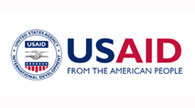The U.S. Agency for International Development (USAID) has announced that a senior coordinator would soon be named to guide the administrative division on LGBT issues overseas.

The Washington Blade, US gay newspaper, reported that the announcement was made on Monday by Donald Steinberg, USAID’s deputy administrator, who unveiled plans to create the new position during a panel discussion in which officials discussed ways the State Department was integrating LGBT concerns abroad as part of U.S. foreign policy.
“In order to highlight these concerns, we’re pleased to announce that USAID will shortly name a senior coordinator for sexual orientation and gender identity who will be responsible for advising the USAID administrator on this agenda,” Steinberg said.
USAID which operates under the State Department is responsible for providing U.S. economic and humanitarian assistance in Sub-Saharan Africa, Asia, Latin America and the Caribbean, Europe and Eurasia, and the Middle East.
The report quoted Steinberg as saying that USAID has integrated “four pillars” as part of its mission to address LGBT issues overseas, including working to enhance the political, social and economic development of LGBT people; ensuring that the LGBT community is part of overseas development; and promoting social and legal equality for LGBT people.
The official also added that the agency would create a new policy committee to facilitate the integration of LGBT issues into the agency’s work.
USAID’s decision follows countries like the Netherlands and Sweden which provide foreign aid for LGBT communities through its embassies and development agencies. Netherlands-based HIVOS, a humanist foundation, receives grants from the Dutch government to administer a portion of foreign aid in over 30 countries in Africa, Latin America, Asia and Southeastern Europe.
The Swedish Government also provides foreign aid through Sida (Swedish International Development Cooperation Agency), RFSU (Swedish Association for Sexuality Education) and RFSL (The Swedish Federation for Lesbian, Gay, Bisexual and Transgendered Rights) to promote LGBT rights and related work. The Ambassador of Sweden to Vietnam, Staffan Herrstrom, was recently named an ambassador for a website for Parents and Friends of Lesbians and Gays (PFLAG). The project was funded by the Swedish International Development Cooperation Agency (SIDA) in association with Vietnam-based Institute for Studies of Society, Economy and Environment (iSEE).
Professor Douglas Sanders, a Fridae columnist and leading international expert on LGBT issues, also told Fridae that the Canadian International Development Agency is known to fund LGBT initiatives – with himself being the first recipient of a grant for a training workshop in 2003 held in Bangkok.











 打印版本
打印版本










读者回应
And in Laos I went to a drag fashion show two years ago also sponsored by USAID.
Fine.
And in Laos I went to a drag fashion show two years ago also sponsored by USAID.
Fine.
IMHO, the U.S. Dept should keep an annually updated Blacklisted Countries for special treatment by the U.S. government and corporations. The Blacklist could also serve as a reference for other governments which are concerned about LGBT rights.
For example, the U.S. government can allow ALL U.S. officials--whether they are LGBT or straight people who support LGBT---who feel concerned to sign on a declaration that they would boycott official visitation to these countries, and allow them to be exempted from official assignments to such countries. This means that, if the State Secretary Hillary Clinton signs on the declaration, she would be exempted from all official assignments to these countries. In this case, the highest-ranking U.S. State Dept official that their govts can hope to host is perhaps just an Assistant Secretary of State. Well, this may make it more difficult for the U.S. to manage its Middle Eastern foreign affairs, but the tough stance can certainly show just how serious and committed the U.S. is in this issue.
Likewise, the declaration can be offered to the major professional and business bodies and corporations. Their Presidents, CEOs, CFOs, Chairmen, Vice Presidents who sign the declaration would also be exempted from official assignments to these countries.
Such a move could even prompt European and South American governments to follow suit. If this happens, I'm quite sure that countries like Singapore would certainly feel some urgency in addressing their LGBT issues.
1) anti-gay laws such as s377a and/or death sentence for gay sex
2) anti-gay policies such as not allowing gays to be employed in certain jobs (e.g. teaching), not allowing gays to share a hotel room, requiring that gay characters in dramas that are broadcast in the mainstream media to either "change" or suffer a tragic ending
3) anti-gay messages in schools: teaching through schools that homosexuality is evil, can be 'changed', and should be 'corrected'.
4) endorse 'reparative therapy' services and support its provision to the public
Through law, schools and media, sexual minorities have been unjustifiably portrayed as evil. This results in serious social homophobia and stigma. Many LGBT grow up struggling in the process of coming to terms with their sexuality, and suffer lower self-esteem.
请先登入再使用此功能。